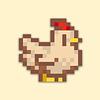Take a photo of a barcode or cover
informative
reflective
slow-paced
This is a work in translation. The original was written sometime in the 1600's, yet it could have easily been written this year. There are many translations of Musashi's work, some reinterpreted for other arenas such as business. This version keeps the focus on strategy for the student of the Way of the warrior. It is applicable to martial artists who utilize weapons as well as those who do not. I will recommend it to advanced students, because on the whole it is a bit much for beginners.
As a fifth degree black belt in Shorin-Ryu Karate, I found the Book of Water and the Book of Fire most useful. One should note that Musashi lived in a era and culture in which it was acceptable for him to kill his enemies, and thus the book focuses on embracing the mentality and willingness to kill your opponent. In our modern world, we do have to keep in mind that there are times and places where deadly force is acceptable and times when it will get you locked up. It may be useful to substitute "defeat" for "kill," in many instances because one can defeat others in a fight as surely as killing them, and the essential strategy is the same.
As a fifth degree black belt in Shorin-Ryu Karate, I found the Book of Water and the Book of Fire most useful. One should note that Musashi lived in a era and culture in which it was acceptable for him to kill his enemies, and thus the book focuses on embracing the mentality and willingness to kill your opponent. In our modern world, we do have to keep in mind that there are times and places where deadly force is acceptable and times when it will get you locked up. It may be useful to substitute "defeat" for "kill," in many instances because one can defeat others in a fight as surely as killing them, and the essential strategy is the same.
informative
medium-paced
slow-paced
informative
inspiring
reflective
fast-paced
Self-improvement through the agea
Much in the same way that Sun Tzu's "The Art of War" has been applied to people in their daily lives, this book remains relevant to the non-samurai among us. The lessons can essentially be boiled down to "victory comes through mastery; true mastery (hence certain victory) comes from self-mastery."
Nice, short read.
Much in the same way that Sun Tzu's "The Art of War" has been applied to people in their daily lives, this book remains relevant to the non-samurai among us. The lessons can essentially be boiled down to "victory comes through mastery; true mastery (hence certain victory) comes from self-mastery."
Nice, short read.
informative
reflective
medium-paced
I am by no means an expert into the philosophy of the historical period that these books originate from, but I believe that this is a fascinating representation of some of the insights surrounding swordsmanship and the culture so pervasive in the time. Some of the advice offered seems sound for non-combat roles, and I look upon my experience with this book fondly. It is a fascinating gaze into the historical literature of Japan, and has piqued my intrigue for future endeavours in Japanese history.
"You should investigate this thoroughly."
It's almost comical how often ^^ is written in the book, but he writes it with truth. Not realizing what this book was about it feels like the perfect companion to my Buddhism 101 book, as Musashi seems to have the same beliefs about how to win, fight, and learn about yourself. It's a very short listen--and the voice does it superbly. Re-reading some of the quotes, I realize I should read/listen to it again. There is a lot of truth and reflection in here--and while it feels like a book about how to win a sword fight, it seems more like a book about understanding the world you live in and your part within it. Maybe too deep for some, even myself, but it intrigued and surprised me all the same.
It's almost comical how often ^^ is written in the book, but he writes it with truth. Not realizing what this book was about it feels like the perfect companion to my Buddhism 101 book, as Musashi seems to have the same beliefs about how to win, fight, and learn about yourself. It's a very short listen--and the voice does it superbly. Re-reading some of the quotes, I realize I should read/listen to it again. There is a lot of truth and reflection in here--and while it feels like a book about how to win a sword fight, it seems more like a book about understanding the world you live in and your part within it. Maybe too deep for some, even myself, but it intrigued and surprised me all the same.
Εάν δεν είχα διαβάσει το Νίντζα του Έρικ Βαν Λουστμπάντερ ξεκάθαρα δεν θα μπορούσα να καταλάβω κάποια "κρυμμένα" νοήματα και να διαβάσω "στο περιθώριο". Το έργο του Μουσάσι σίγουρα είναι σκοτεινό και περιέχει πολύ περισσότερες πληροφορίες για το πνεύμα των πολεμικών τεχνών απο όσες μπορεί να φανταστεί ένας απλός αναγνώστης. Δεν μπορώ να εκφράσω με λίγα λόγια την συνεισφορά του λοιπόν παρά με αυτό, Για να μάθεις την αλήθεια πρέπει να γνωρίσεις όχι μόνο το φως αλλά και το σκοτάδι.




